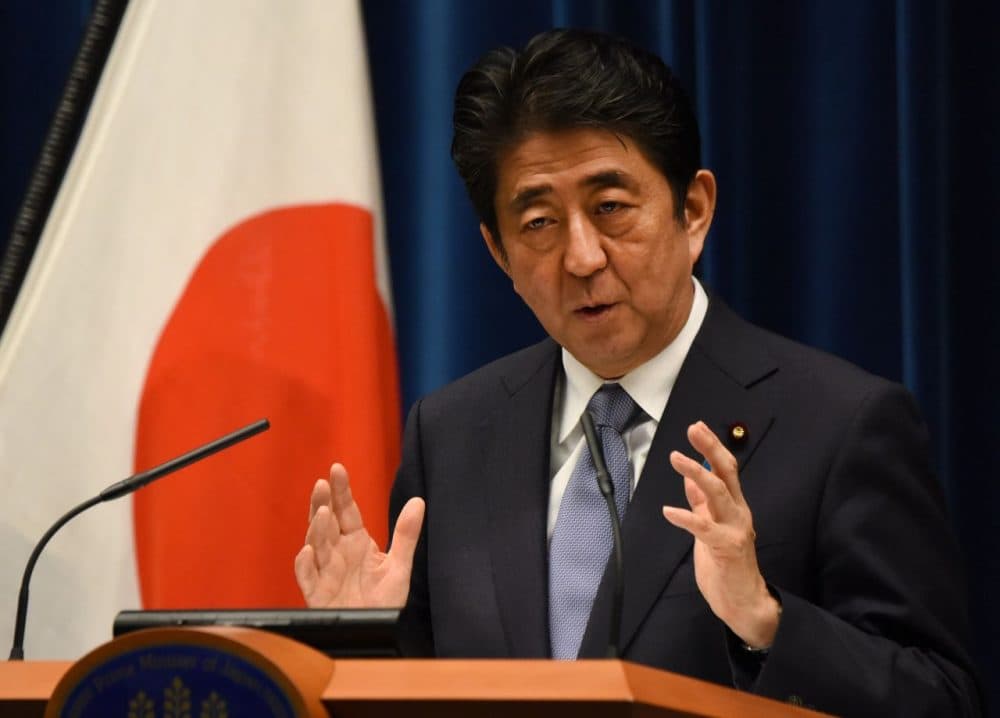Advertisement
When Should Nations Apologize?
Resume
Today, Prime Minister Shinzo Abe marked the 70th anniversary of Japan's surrender ending World War II. He upheld past apologies made by the country's government but he did not issue a new one.
China and South Korea, which suffered under Japanese occupation during the war, say that country has never fully atoned for its conduct during the war. How does a country do that, and should it?
Here & Now's Jeremy Hobson talks with international relations professor Thomas Berger about when and why a country should apologize for its actions.
Guest
- Thomas Berger, professor of international relations at Boston University's Pardee School of Global Studies, and author of "War, Guilt and World Politics After World War II."
This segment aired on August 14, 2015.